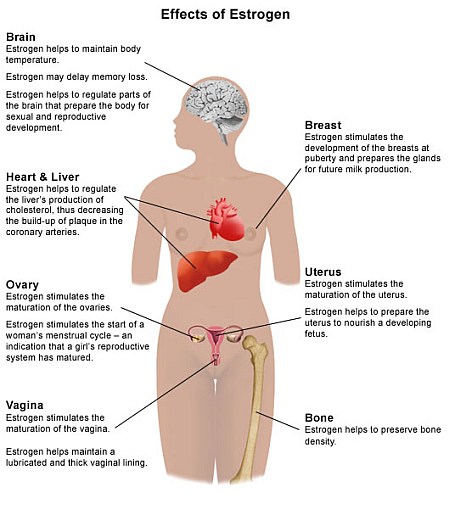4 Ways to Lose the Weight and Stay Stress-Free
Guilt Trips from Cravings Cave-Ins
You snap at coworkers for no reason. Feel bitter every time your thin friends order dessert. Beat yourself up after losing an hour-long standoff with a chocolate-chip cookie. Dropping extra pounds is supposed to make you healthier and happier — but it doesn't always feel that way. In fact, according to a recent study at UCLA, dieting may actually cause chronic stress. Here, four signs that you're at risk for diet-induced anxiety, plus simple fixes to help you lose weight without losing your mind.
The Sign: You give yourself a mental flogging every time you cave in to a craving.
The Cause: Having unrealistic goals. Set your expectations too high — trying to lose 20 pounds in a month or vowing never to eat chocolate again — and you're likely to slip up often, making you feel defeated and hopeless.
The Fix: Make it as easy as possible to achieve small successes on a regular basis, suggests Marlene B. Schwartz, PhD, a clinical psychologist and codirector of the Yale Center for Eating and Weight Disorders. For example, setting a weight-loss goal of losing 10 pounds before your class reunion gives you only one chance to succeed. On the other hand, setting goals like avoiding the office vending machine or choosing the stairs over the elevator offers opportunities to pat yourself on the back every day. Bonus: Focusing on accomplishments builds confidence. "Research shows that the more you believe you can lose weight, the more likely you are to actually do it," says Schwartz.
Out-of-Control Stress
The Sign: Despite a normal workload at the office, your stress level is through the roof.
The Cause: Going it alone.
In a recent Aston University study in Birmingham, England, dieters who didn't receive social support from an organized group showed significantly higher stress-hormone levels than those assigned to a group weight-loss program. "A lack of guidance, as well as a lack of empathy, is likely responsible," says Mike Green, PhD, lead author of the study.
The Fix: Commercial programs such as Weight Watchers or eDiets offer solid nutrition advice as well as that we're-all-in-this-together feeling. But groups you already belong to could also help: A study from Johns Hopkins University found that individuals who participated in a church-based nutrition and exercise program lost 6.8 pounds, while those who flew solo gained 4 pounds. Rally your friends and family to be your cheerleading squad. "Emphasize how important it is to you to make these lifestyle changes, then offer specific examples of what kind of encouragement will help and what won't," says Beth Casey Gold, RD, clinical coordinator of the Behavioral Weight Management Program at the University of Vermont in Burlington. Compliments on your improving figure: helpful. Discouraging looks when you reach for seconds: not so helpful.
Anger, Tension, and the "Atkins Attitude"
The Sign: You find yourself whipping smart remarks at friends, coworkers, and perfect strangers for even the most minor infractions.
The Cause: Skimping on key nutrients.
Drastically cutting carbohydrates may lead to increased feelings of anger, tension, and depression — a side effect some researchers have termed the "Atkins attitude." "The body needs carbs in order to produce serotonin, a neurotransmitter in the brain that regulates mood, emotions, sleep, and appetite," says Judith Wurtman, PhD, director of the Women's Health Program at MIT. "When you significantly reduce your intake of carbohydrates, the body makes less serotonin, and it becomes difficult to be patient or control your anger." Other deficiencies that can affect mental health include a lack of omega-3 fatty acids, which could result from cutting high-fat foods like nuts, fish, and oil from the diet and may contribute to depression. Insufficient intake of vitamins B6 and B12 and folate has also been linked with depression and mood swings.
The Fix: Grab a high-carb snack like whole-grain toast or popcorn, aiming for at least 130 grams of carbohydrate a day, the minimum required to maintain optimal brain function, according to the National Academy of Sciences' Food and Nutrition Board. Two servings of fatty fish per week plus a handful of walnuts a day will provide ample omega-3s. Take a multivitamin as insurance against other deficiencies.
Constant Temptation, No Satisfaction
The Sign: You see temptation around each and every corner.
The Cause: Making temporary changes instead of adopting permanent healthy habits.
Dieting with an end in sight (e.g., "only two more weeks of carrot sticks and I'm a free woman!") focuses your attention on everything you can't have, making you feel deprived. Each time you start a new diet, it's a jolt to the system followed by several months of agony.
The Fix: "Gradually incorporate small changes that you'll stick with for life," recommends Schwartz. Deciding to replace your afternoon potato-chip fix with a piece of fruit from now on isn't nearly as traumatizing as banning every form of bread. Instead of listing the foods you'll shun in order to cut calories, focus on what you'll add to your diet to stay satisfied and improve your health. For example, if you buy fresh kiwifruit and have two after dinner when you'd normally have a cup of ice cream, you'll lose 10 pounds in six months — without breaking into tears every time you pass a Baskin-Robbins. Small switches are easier to get used to, so that over time, you won't even feel like you're "on a diet."
-
Useful Tips To Lose Weight And Be Healthy!
TIP! Try reducing your calorie consumption to lose weight eff
-
Exercise during Pregnancy
Exercise during Pregnancy By: Andres Carvajal Edited By: Steph
-
How to Drink Tea to Lose Weight
Numerous scientific studies have shown that tea drinkers, specificall
-
Belviq Weight Loss Pill to Treat Obesity
The U.S. Food and Drug Administration today approved Belviq los
-
What Causes Love Handles?
What Causes Love Handles? 1. Unhealthy diet Few people give th
-
What Are Dr Oz Advises For Weight Loss
That dream of being slim can be achieved if you just get a strong
- DON'T MISS
- How to Lose Belly Fat in 2 Weeks
- How To Lose 10 Pounds Fast
- 4 Simple Ways To Declutter Your Living Room For Good
- The Foundation To Successful Weight Loss - A Healthy Diet And Lifestyle
- Weight Loss Tips To Motivate And Inspire
- How to Be Zen About Not Losing Weight
- 7 Effects of Soda
- Top Healthy Ways To Lose Weight Before Your Swimsuit Vacation
- Overweight? Maybe You Really Can Blame Your Genes
- Reducing Weight with Pranayama




